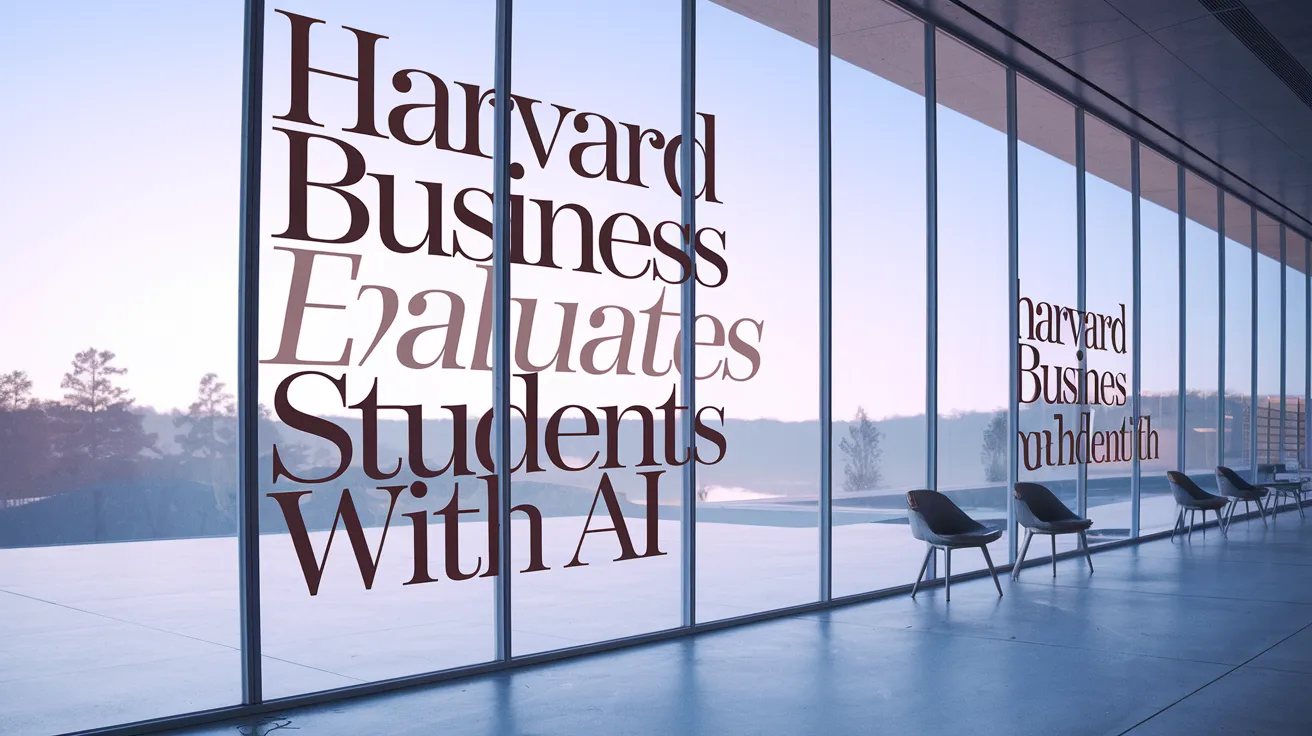Harvard Business School Evaluates Students with AI

Harvard Business School (HBS) is making significant strides in integrating artificial intelligence (AI) into its educational framework, as articulated by Dean Srikant M. Datar during a recent event at Boston AI Week. This innovative approach is primarily focused on providing rapid feedback on students’ work, such as spreadsheets, through advanced AI tools.
Datar highlighted HBS’s ongoing experimentation with AI in the classroom, particularly through initiatives like Foundry. This platform enables entrepreneurs from outside Harvard to access valuable entrepreneurial management content, fostering a richer community by connecting diverse individuals with ideas and resources. He expressed optimism about the potential of Foundry to make a substantial impact globally.
He further noted that advancements in AI have streamlined processes, resulting in a more connected world, which faculty members are actively leveraging for both research and teaching purposes. Datar’s insightful observation, “Every time you think something can’t be done, the next model shows that it can be done,” reflects an encouraging perspective on the evolving role of AI in education.
HBS administrators shared their commitment to utilizing AI for improving student feedback mechanisms at the Christensen Center for Teaching and Learning, converting feedback into actionable insights for professors. It is essential to underline that this initiative aims not to replace existing methods but to augment human-centered approaches, making discussions more effective, as emphasized by Fritz Jordan Kocher, an HBS Application Analyst.
Matthew Negri, from the Digital Transformation Department at HBS, reinforced that AI development is intended to enrich the traditional classroom experience rather than substitute it. He stressed the importance of maintaining the dynamic elements of in-person learning, such as chalkboards and faculty interactions, while acknowledging that learners often require support at different hours. AI serves as an always-available resource that complements this learning style, particularly during late-night study sessions when faculty assistance may not be readily available.
Tsedal Neeley, senior associate dean and chair of the MBA program at HBS, pointed out that AI is fundamentally intertwined with the concept of change. Her notion of the “30 percent rule” suggests that students and users do not need extensive expertise in AI to take advantage of it; a foundational understanding of core concepts suffices. Neeley’s analogy of AI knowledge being more of a “curated pond” rather than an exhaustive ocean is particularly insightful, hinting at a more approachable and manageable entry point into the world of AI.